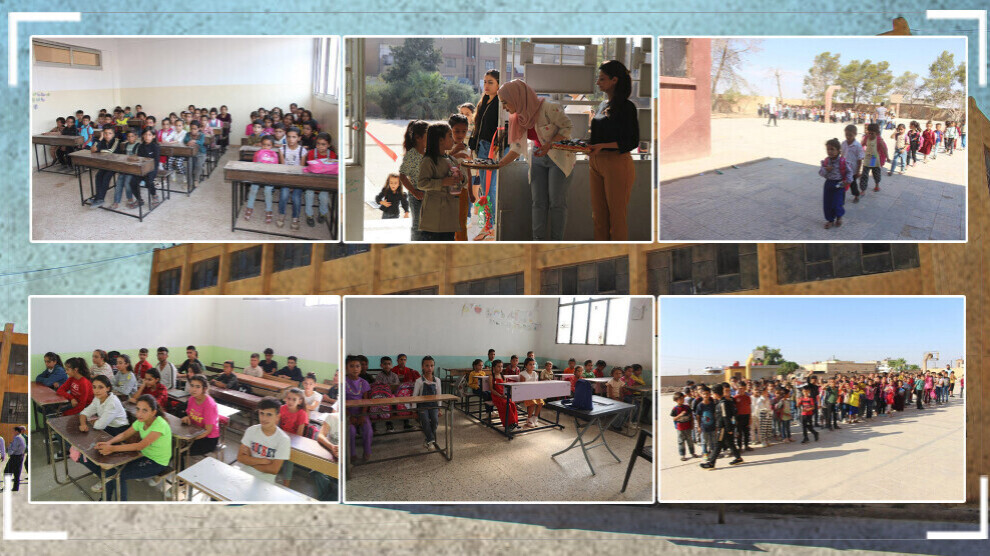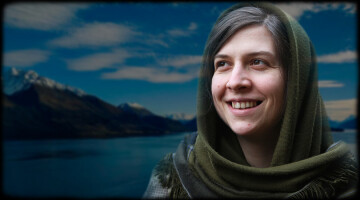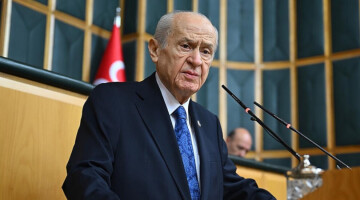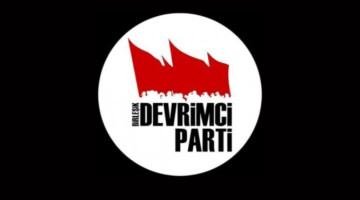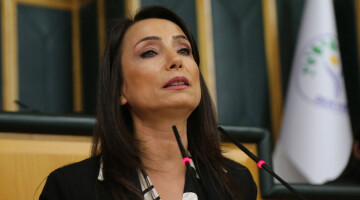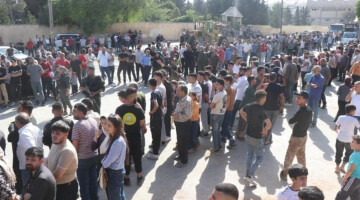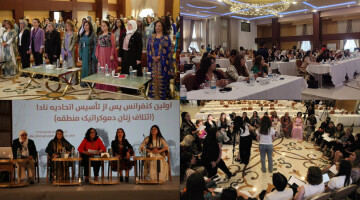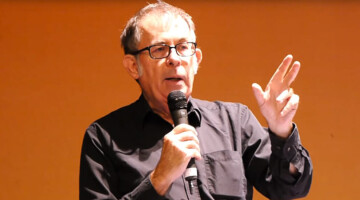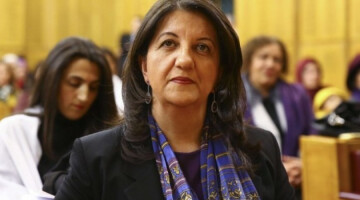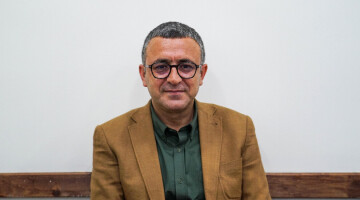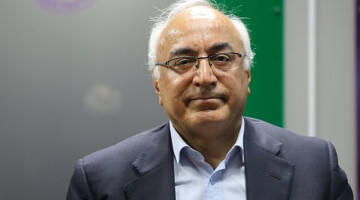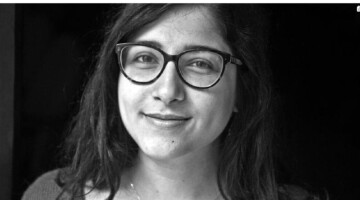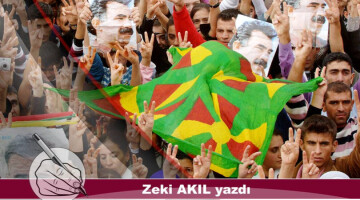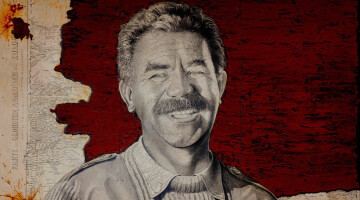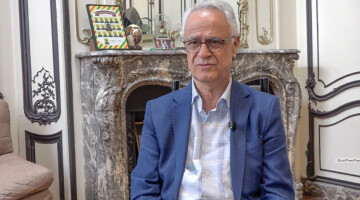The Rojava revolution in 2012 marked the beginning of the construction of a new education system on a democratic basis in Northern and Eastern Syria. The new education system is based on the pluralistic, radically democratic paradigm of the Democratic Nation.
While before the revolution, Kurdish was only taught in secret and Aramaic was only permitted as a liturgical language, lessons are now held in the mother tongue. Kurdish, Arabic and Aramaic are among the official languages, and there is a trilingual education system. Every population group has the right to education in their mother tongue, and the establishment of language courses also prevents the loss of languages.
The school year in Northern and Eastern Syria began on 8 September. More than 860,000 students are taught by 41,000 teachers. There are a total of 3,063 primary schools, 179 secondary schools and 46 high schools and comprehensive schools. In total, that is 4,120 schools. However, twenty schools are unusable due to the war. They have been destroyed or severely damaged, mainly by attacks from Turkey.
Primary school includes grades one to six, middle school grades seven to nine and high school grades ten to twelve. Each student completes the first three years of school in their native language, Kurdish, Aramaic or Arabic. From fifth grade, English is taught as a foreign language.
The curriculum committee, established in 2014, made some changes to the curriculum for grades one, four, seven and ten this year. The teaching materials for these grades have been improved. The committee has analyzed the curriculum in detail for about four years and tried to correct its deficiencies. The first half-year ends on 2 January 2025, the second half-year begins on 15 January and ends on 15 May 2025.
Semîra Hec Elî, co-chair of the Education Committee of the Democratic Autonomous Administration of Northern and Eastern Syria, said that a parents' council has been established in the 2024/25 school year and that the curriculum will be unified in the region. Elî said: "We established the parents' council to promote the joint work of students, teachers and families and to monitor progress. We consider this system necessary to strengthen the bond between society and schools and to ensure that the education system is effective in families.
In addition, extensive work has been carried out in the region to unify the curriculum. Previously, the curricula in the cantons of Firat, Cizîrê and Shehba-Afrin were identical. This year, the curriculum from the first to the twelfth grade in Tabqa canton, from the first to the ninth grade in Raqqa canton, and from the first to the sixth grade in Manbij and Deir ez-Zor cantons is implemented in accordance with the education and training system of the Democratic Autonomous Administration of Northern and Eastern Syria. Our main goal is to ensure the integrity of our curriculum in the region. In order to develop and enrich the curriculum, a review will be carried out over a period of three to four years. This year, the curricula for the first, fourth, seventh and tenth grades have been modified and expanded."
Every identity has the right to open its own language institution
Semîra Hec Elî continued: "In Northern and Eastern Syria, education is offered in Kurdish, Arabic and Aramaic. But the Armenian, Circassian, Turkmen and other population groups also have the right to establish educational opportunities in their native language. We are currently working on opening an Armenian language institute."
Regarding teachers, Elî said: "In the early stages of the revolution, we maintained our education system with teachers who were fluent in the language without seeking professionalism. However, with the opening of primary schools, secondary schools, high schools and universities, teachers are now required to have a university or institute certificate. Even teachers who have not graduated from a self-governing institute or university can work in our schools with a written exam. It is also one of the most important conditions that our teachers have a good understanding of the Democratic Nation philosophy."
Turkish attacks have a negative impact on education
Elî said that the Turkish state’s attacks were particularly directed against educational institutions, and added: "Schools are particularly affected. Children in the border areas are constantly under threat of attacks, and many schools have been damaged or rendered unusable. We have tried online education as an alternative, but this is no substitute for face-to-face teaching. In addition, our 1-4-7-10 curriculum has been transferred to video lessons. Learning under fire has a negative impact on children’s psyche and prevents them from achieving the desired results. We provide free teaching materials up to twelfth grade, but due to the attacks and the embargo, it is difficult for families to meet their needs for teaching materials."
Elî explained that there are also certain differences in the Kurdish, Arabic and Aramaic curricula. "Our curriculum is trilingual: Kurdish, Arabic and Aramaic. Each language has different songs. Our teaching materials are usually translated, so there are no major differences, but cultural differences can change the course content. The specific culture of each people is covered. Children grow up with different cultures, and the trilingual system aims to create a common life, culture and feeling. The unity of spirit in school is directly reflected in society."
30 teachers trained to teach Armenian
Imad Teteriyan spoke about teaching Armenian: "We needed professional teachers to keep the Armenian language alive. We offered language courses for all members of the Armenian community, young and old, and trained 30 specialized teachers. Our language institute will open in 2025. The facility will train teachers from primary school to university and provide native language instruction for Armenian children. Teachers will be trained in the morning and teach students in the afternoon. When self-government is included in the education system, a solid foundation will be created for Armenian children."
Teteriyan stated that preparations for the curriculum for Northern and Eastern Syria are underway, and added: "The curriculum for grades one to three has been completed. Preparations for the curriculum up to grade six will begin soon. The children studying at the language school will be included in the education system of the autonomous administration and will receive a better education. In 2026, Armenian children will keep their history, culture, language, traditions and customs alive in line with the paradigm of the democratic nation."
The Olaf Tao Aramaic Language Institute
The Olaf Tao Aramaic Language Institute is responsible for training Aramaic teachers who teach using the materials of the Autonomous Administration and for adapting the curriculum to the Aramaic language. The institution also offers language courses for new generations so that they can learn their native language. Olaf Tao, which has centers in Dêrik, Hesekê, Qamishlo, Dirbêsiyê and Tirbêspiyê, has now started the 2024/25 school year to ensure that Aramaic children can also benefit from the autonomous authority's teaching materials in the churches.
Saliba Yakub from Olaf Tao's board introduced the institution: "Olaf Tao was founded in 2014, and we are making great efforts to develop the Aramaic language. We want our children to grow up with their culture, language and history. Therefore, it is necessary to train people who have a good command of the Aramaic language. Olaf Tao has taken on this task. In 2019, we adapted the North and East Syrian curriculum from primary school to high school in Syriac and handed it out to the children in the churches. If a change in the Aramaic curriculum is necessary, we discuss and decide together."

